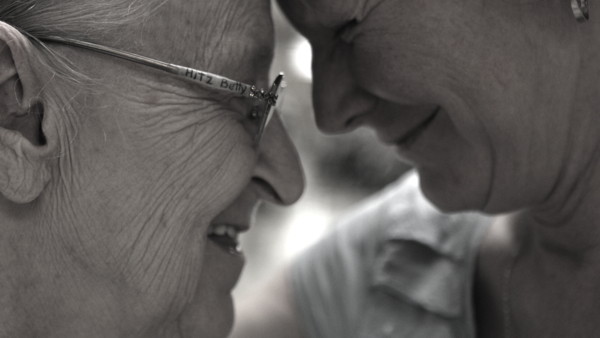
NEW YORK — After every meal, Betty Hitz would try to clean up the dining room of the nursing home where she lived.
When the staff tried to stop her, Hitz, a 78-year-old Alzheimer’s patient, became furious, screaming, and punching people.
This is the point where many New York City nursing homes would turn to powerful antipsychotic medications to control Hitz’s behavior. The drugs sedate patients so they’re unable to act out. But they also come with serious side effects. For decades, these medications have been known to increase the risk of falls, strokes, and death among people with dementia, which includes Alzheimer’s.
{sidebar id=9}
The drugs are so dangerous they’re banned as “chemical restraints” under state and federal regulations. Still, they’re loosely regulated and commonly administered to New York City patients. An analysis of recent Medicare data reveals an estimated 9,400 elderly New York City nursing home residents — about one-in-four — are administered the dangerous drugs.
Some nursing homes have more than 50 percent of patients on antipsychotic drugs.
Officials with the state Department of Health say their inspectors are trained to look for the use of unnecessary drugs — not whether powerful antipsychotics are being prescribed legally and in accordance with best practices. The Long Term Care Ombudsman Program, a joint federal and state program, says antipsychotics are "outside their sphere of responsibility."
Not all nursing homes drug their seniors into submission. Some are on the other end of the spectrum, working to reduce the reliance on chemical restraints. And it is at those nursing homes where some of the best solutions to weaning dependence on the use of antipsychotics can be found.
Providence Rest Nursing Home, with less than two percent of residents on antipsychotics off label, is one of them. Susan Steinberg, administrator of Providence, said their staff avoids the use of antipsychotics and provides personal attention to address behavior problems. She also started a program where high school students help feed seniors dinner in the dementia ward every weekday.
Cobble Hill Health Center, a nursing home in Brooklyn, is also trying to reduce its dependence on antipsychotic drugs to control patients. Most nursing homes are institutions designed to provide acute care, which requires strict schedules, food guidelines, structured activities, and mandated physical therapy. That aggravates people with dementia, says Tony Lewis, administrator at Cobble Hill.
"A dementia unit has to teeter on the brink of anarchy but not slip into it,” Lewis said. “There has to be enough space for people to do their own thing.”
On the night Hurricane Sandy struck, many residents at Cobble Hill were upset. But instead of sticking to the institutionalized schedule, nurses allowed four patients to get up at 3 a.m. and eat peanut butter sandwiches.
"That was one of my proudest moments," Lewis said. "That's a situation that would never happen in most nursing homes, where strict rules govern sleeping and eating patterns for the convenience of the staff.”
Lewis said simple things make a big difference. For example, during shift transitions, staff are silent, they don't say hi, goodbye, visibly put on their coats, or chat with each other. The commotion of people coming and going can upset and confuse residents with dementia, Lewis said.
It's not all simple. Sometimes figuring out individuals' triggers can take months while staff members compare notes. Every person brings different experiences, cultures, and habits that require interpretation.
"Each one [of us] has to become a little Sherlock Holmes to unlock the little mysteries,” Lewis said.
Lewis described a resident that yelled and screamed about dying babies. After some investigation, staff realized screeching wheels on the medication cart sounded like crying babies to her. They could have controlled the outbursts with antipsychotics. Instead, they spritzed WD-40 on the wheels.
There are times when limited use of antipsychotics are warranted, doctors said. Dr. Dilip Jeste, a professor of psychiatry and neuroscience at the University of California San Diego, who recently published a study of long term antipsychotic use said, “Antipsychotics should be used in shorter term, side effects monitored, low doses, and stopped when possible.”
That’s what happened for Betty Hitz, after Cobble Hill staff tried for several weeks to calm her down, according to her daughter, Carol Hitz.
The younger Hitz, a psychiatric social worker, reluctantly allowed them to administer a low dose of an antipsychotic medication that “helped take the edge off.” At the same time, the nurses, realizing that Hitz was a retired substitute teacher, decided to allow her to help clean up after meals. They also gave her simple administrative tasks like organizing index cards. Now they’re weaning her off the drugs.
“It was the social interventions that made the difference,” Hitz’s daughter said.
____
Elbert Chu is a science and education journalist. He’s worked for The New York Times, Popular Science, Fast Company, and ESPN. His documentary photography has spanned Lubavitch Jews and Orphans in Nepal, to the devastation of Haiti’s earthquake and a school shooting. He and his wife live amazed by grace in New York City. www.elbertchu.com | @elbertchu




